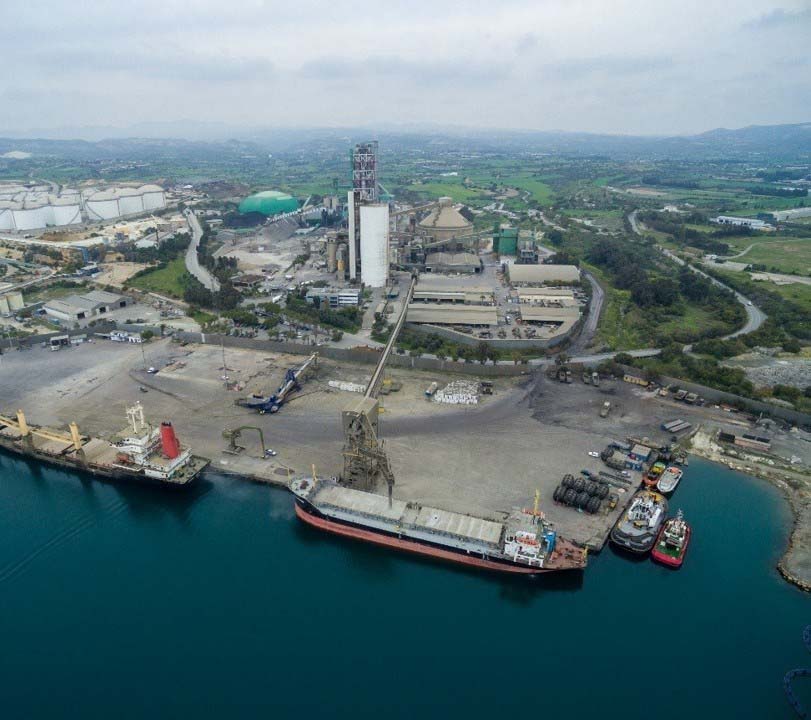MPs hauled government officials over the coals on Tuesday after learning that the LNG import project at Vasiliko not only would not be ready by year’s end, as previously promised, but that a timetable for its completion will not be submitted for several months yet.
Aghast lawmakers heard that the project manager – which took over the Vasiliko LNG venture in May – will submit its timetable for the remaining works by March 2026. In short, it won’t be until March next year that the government will have a definitive, binding timetable.
At the House energy committee, government officials as well as Energy Minister George Papanastasiou sprung several surprises on MPs.
Other than conceding that the LNG project would be delayed far more than earlier indicated, officials also changed their story regarding the certification of the floating, storage and regasification unit (Fsru), an integral part of the project.
The Fsru is currently in Malaysia undergoing repairs and upgrades.
Responding to questions, Papanastasiou said the vessel is missing two components which the former Chinese contractor had failed to install.
The first component is a valve system used in liquefying natural gas, and the second is a unit that generates nitrogen. The cost of both comes to between €8 million and €9 million.
“Whatever is missing from the ship and was in the contract [with the Chinese contractor] will be claimed in the arbitration process in London,” the minister said.
In July 2024, the Chinese-led CPP-Metron Consortium Ltd (CMC) broke the contract with the Cypriot government, citing irreconcilable differences. That left the LNG project half-finished and in limbo. Arbitration proceedings are underway in a London court.
On the Fsru – dubbed Prometheas – the chairman of Defa (natural gas public company) Giorgos Ashikalis said that it is costing taxpayers €367,000 a month while in Malaysia.
This includes the fees to a Norwegian company hired to manage the ship, plus local anchorage fees.
But officials had yet another surprise in store for MPs: it turns out that, contrary to previous pronouncements, the vessel will not be certified as an LNG carrier after all. This, officials had earlier stated, would have been the first step to allow the vessel to set sail from Malaysia.
But Papanastasiou said that they have since received an advisory from a certification firm, according to which the ship cannot be certified both as an LNG carrier and as an Fsru. One would cancel the other out.
It therefore seems that the government will now seek only Fsru certification for the vessel.
On when this might happen, the minister said September of this year. The ship is now expected to be delivered to Cypriot authorities by October.
Blitzed by questions, the minister placed the total price tag for the LNG project at €325 million – of which the €220 million concerns the Fsru.
Regarding the land-based facilities at Vasiliko – the terminal infrastructures and the pier where the Fsru would dock – Papanastasiou said the government has hired a private consultant, a French company “with a reputation for finishing half-completed projects”.
The company “has received all the documents, they’ve been given full access, and we’re waiting for them to come up with the solutions.”
At the moment, the entire project is around 45-50 per cent complete.
On the pier specifically, the minister said talks are ongoing with the sub-contractor of the former Chinese consortium. A deal with the subcontractor is close, he added.
Again, this contradicted earlier official statements, according to which the government was legally barred from using any of the subcontractors of the Chinese consortium, as it was the latter which tore up the contract.
However, Defa’s Ashikalis said they have since found a legal clause allowing the government to do business with the subcontractor.
Asked directly by an Akel MP whether the end of 2025 delivery deadline is now off the table, the energy minister said yes.
Defending the government, Papanastasiou said the LNG project had been taken over “with a great deal of baggage and problematic decisions”.
Were the project to begin today, he asserted, the current administration would never have taken the decisions made at the time.
“The choice of contractor [the Chinese] and the extremely vague contracts would not be repeated.”
Defa and the government are now doing their best to make up for past mistakes. Also, they need to tread carefully, to abide by public procurement procedures, which are time-consuming.
“Were the private sector in charge, the project would have been done in a year,” the minister remarked.
It was back in December 2019 when Cyprus signed the contract with the Chinese-led consortium. There followed four delivery timetables – September 2022, July 2023, October 2023 and lastly July 2024. In that same month, the Chinese contractor pulled out.






Click here to change your cookie preferences